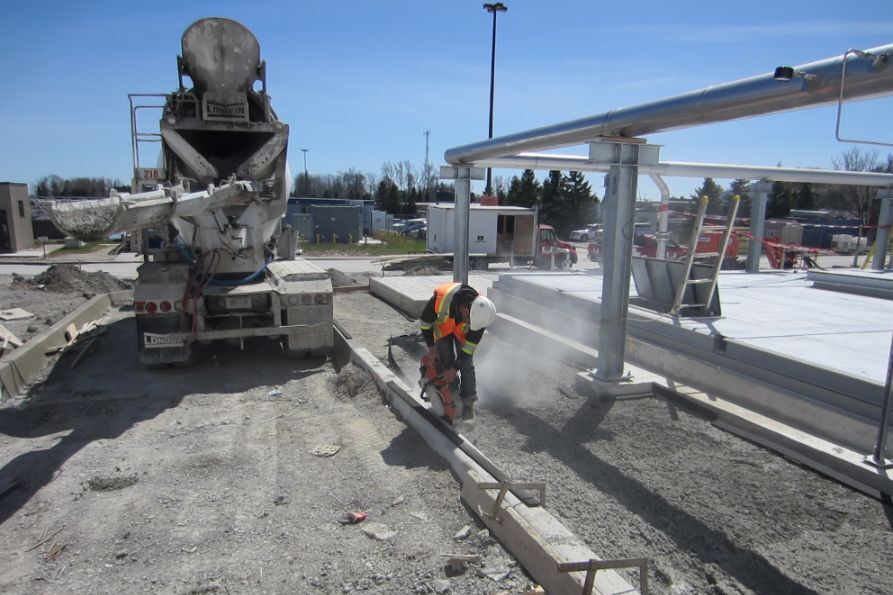Have you read or heard the wrong information about concrete paving?
Although it is one of the oldest and most popular paving materials, there are all sorts of myths surrounding concrete—myths that might even deter you from using concrete paving for your business.
Not to fear—we’re here to debunk some of the most common myths about this material. Here are six of them!
1. Concrete isn’t very durable
Because cracks tend to be rather large and noticeable, many people figure that concrete lacks durability. While not immune to extreme conditions or immense pressure, concrete is highly durable overall.
In fact, durability remains one of concrete’s greatest advantages over asphalt. While asphalt pavement typically lasts for an average of 20 years, concrete can last for up to 40 years when properly maintained.
2. Concrete doesn’t need maintenance
Like asphalt, concrete requires maintenance in order for it to last. Concrete’s light hue is particularly susceptible to stains from oils and other chemicals. Sealing can help prevent these stains, as can frequent power washing.
While it’s true that concrete tends to require less maintenance than asphalt, concrete repairs tend to be more expensive than asphalt repairs.
3. Concrete only comes in gray
While it’s true that most concrete is gray, not all shades are the same. You can often select the shade that will work best with your property.
If you don’t want a shade of gray, you can opt for another colour entirely. Simply ask your concrete paving contractor to mix in another colour before the concrete has fully cured!
4. Concrete can be poured at any time
While concrete is always being poured somewhere in the world, it is difficult to pour in certain conditions. The reality is that concrete requires a reasonable temperature—ideally, between 4 and 16 degrees —in order for the right chemical reactions to occur.
If air temperatures exceed roughly 32 degrees, the mixture’s water content will evaporate and the concrete will cure too quickly. Conversely, when air temperatures dip below 0, the curing process is delayed significantly.
5. Concrete and cement are the same
While you’ll often find the terms concrete and cement being used interchangeably, it’s important to make the distinction between the two.
Cement is one of the ingredients used in a concrete mixture, similar to how flour is an ingredient used in a cake. Concrete also consists of other materials—including water, sand, aggregate, and paste.
6. Concrete isn’t porous
To the average person, concrete can seem especially hard and impermeable—particularly when compared to asphalt. However, all types of concrete are permeable to some degree.
Depending on the concrete’s density, water can start penetrating the material almost immediately or over the course of a few months. In any case, this attribute can help prevent water from pooling in certain areas of your pavement.
Need a top-notch concrete paving company in Toronto? At Empire Paving, we are concrete specialists. Get in touch with us today and we’ll even give you a free quote on your next project!







 We were very pleased with the professional job done by Empire Paving this fall.
Luciano and his team were very reliable, knowledgeable and able to handle all issues that arose during completion of this project. We would highly
recommend Empire Paving for any paving job!
We were very pleased with the professional job done by Empire Paving this fall.
Luciano and his team were very reliable, knowledgeable and able to handle all issues that arose during completion of this project. We would highly
recommend Empire Paving for any paving job!